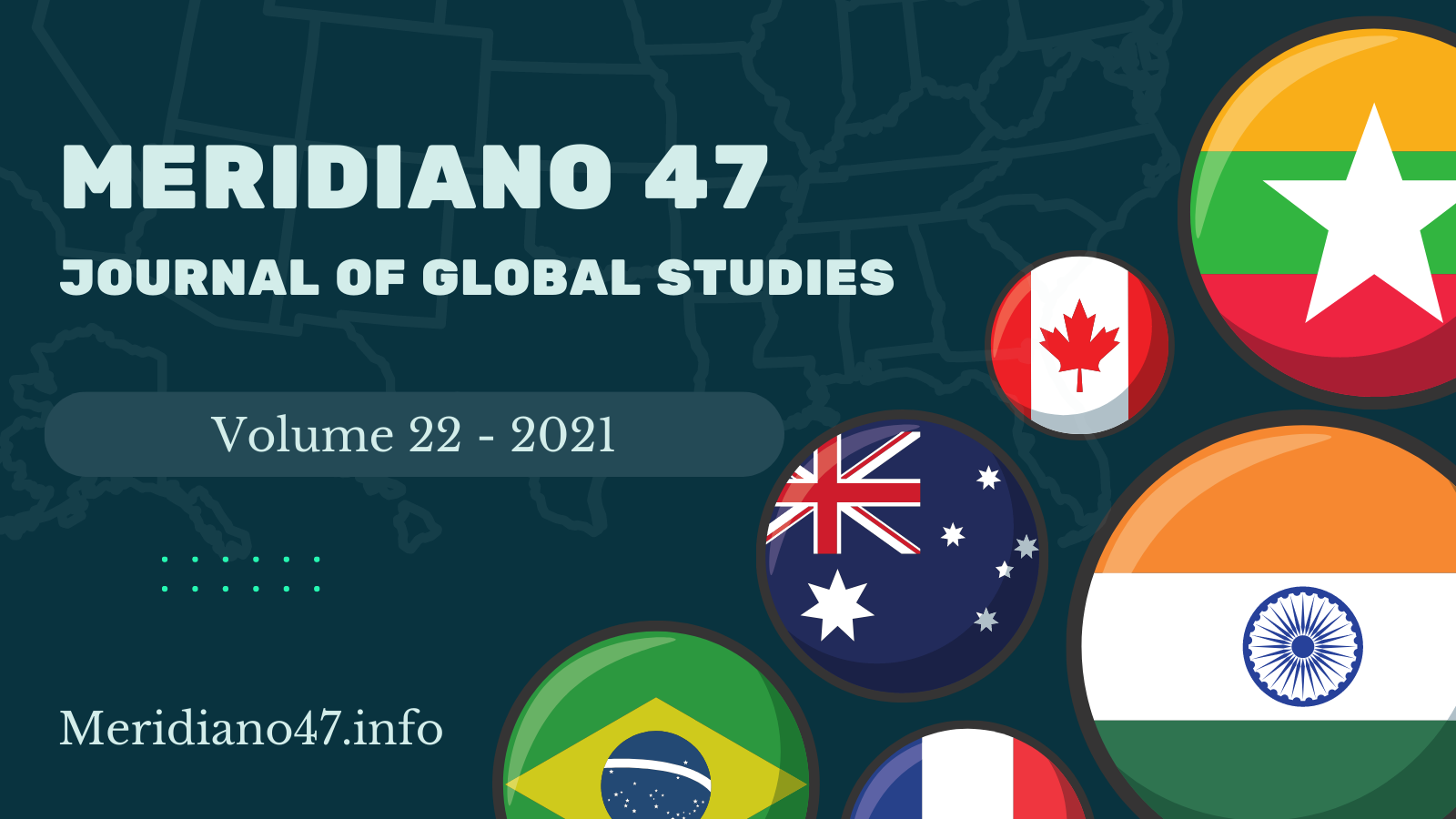Third World encounters human rights: Revisiting the 1968 Tehran Conference
DOI:
https://doi.org/10.20889/M47e22009Keywords:
direitos humanos, terceiro mundo, ONU, colonizaçãoAbstract
The article argues that the Tehran Conference was a milestone in the anti-colonial discursive practice of human rights constructed by third world diplomats. Based on documentary research and post-colonial literature, the article highlights the ambivalences of the conference, with new frameworks for human rights and the involvement of authoritarian regimes. Criticisms against colonization and racism emerged through the language of human rights, as well as the agenda of development.
Downloads
References
Alston, Philip. “Does the Past Matter-On the Origins of Human Rights”. Harvard Law Review, 126 no. 7 (2013): 2043–81.
Alves, Márcio Moreira. 68 mudou o mundo. Rio de Janeiro: Editora Nova Fronteira, 1993.
Anghie, Antony. “Bandung and the origins of Third World Sovereignty”. In Bandung, Global History, and International Law: Critical Pasts and Pending Futures, editado por Luis Eslava, Michael Fakhri e Vasuki Nesiah, 535–51. New York: Cambridge University Press, 2017.
Brett, Annabel S. Liberty, Right and Nature: Individual Rights in Later Scholastic Thought. Cambridge: Cambridge University Press, 1997.
Burke, Roland. “From individual rights to national development: the first UN international conference on human rights, Tehran, 1968”. Journal of World History 19, no. 3 (2008): 275–96.
Burke, Roland.. Decolonization and the evolution of international human rights. Philadelphia: University of Pennsylvania Press, 2010.
Burke, Roland.. “‘How Time Flies’: Celebrating the Universal Declaration of Human Rights in the 1960s”. The International History Review 38, no. 3 (2016): 394–420.
Cançado Trindade, Antônio Augusto. “O processo preparatório da Conferencia Mundial de Direitos Humanos: Viena, 1993”. Revista Brasileira de Política Internacional 36, no. 1 (1993): 1–45.
Cançado Trindade, Antônio Augusto.. A proteção internacional dos direitos humanos e o Brasil, 1948-1997: as primeiras cinco décadas. Brasília: UnB, 2000.
Donnelly, Jack, e Daniel J Whelan. International Human Rights. 6a ed. New York: Routledge, 2020.
Eckel, Jan. The Ambivalence of Good: Human Rights in International Politics Since the 1940s. Oxford: Oxford University Press, 2019.
Forsythe, David P. Human rights in international relations. Cambridge University Press, 2017.
Glendon, Mary Ann. A World Made New: Eleanor Roosevelt and the Universal Declaration of Human Rights. New York: Random House, 2001.
Hunt, Lynn. A invenção dos direitos humanos: uma história. São Paulo: Companhia das Letras, 2009.
Indonésia. Asia-Africa speak from Bandung. Jacarta: Ministry of Foreign Affairs, 1955, p. 161-169.
Irwin, Ryan M. Gordian Knot: Apartheid and the Unmaking of the Liberal World Order. New York: Oxford University Press, 2012.
Jensen, Steven L. B. The making of international human rights: the 1960s, decolonization, and the reconstruction of global values. New York: Cambridge University Press, 2016.
Marchesi, Aldo. Latin America’s Radical Left: Rebellion and Cold War in the Global 1960s. Vol. 107. Cambridge: Cambridge University Press, 2017.
Markarian, Vania. El 68 uruguayo: El movimiento estudiantil entre molotovs y música beat. Buenos Aires: Universidad Nacional de Quilmes Editorial, 2012.
Martinez, Jenny S. The Slave Trade and the Origins of International Human Rights Law. New York: Oxford University Press, 2011.
Morsink, Johannes. The Universal Declaration of Human Rights: origins, drafting, and intent. Philadelphia: University of Pennsylvania Press, 1999.
Moyn, Samuel. The last utopia. Cambridge, MA: Harvard University Press, 2010.
Moyn, Samuel. Not enough: Human rights in an unequal world. Cambridge, MA: Harvard University Press, 2018.
Mutua, Makau. Human rights standards: hegemony, law, and politics. Albany: State University of New York Press, 2016.
ONU. Carta das Nações Unidas, 1945. Disponível em: http://www.planalto.gov.br/ccivil_03/decreto/1930-1949/d19841.htm. Acesso em: 7 de maio de 2021.
ONU. Summary Records of the First to Thirteen Meetings, 22-30 April 1968 (A/CONF.32/SR.1-13). Documento disponível nos Arquivos da Organização das Nações Unidas, Genebra, 1968a.
ONU. Summary Records of the First to Thirteen Meetings, 22 April to 13 May 1968 (A/CONF.32/SR.14-27). Documento disponível nos Arquivos da Organização das Nações Unidas, Genebra, 1968b.
ONU. Tehran Final Act. Disponível em: https://legal.un.org/avl/pdf/ha/fatchr/Final_Act_of_TehranConf.pdf. Acesso em 18 de novembro de 2020, 1968c.
Okafor, Obiora Chinedu. “A regional perspective: article 22 of the African Charter on Human and Peoples’ Rights”. In Realising the right to Development: Implementing the Right to development: Essays in Commemoration of 25 Years of the United Nations Declaration on the Right to Development, editado por OHCHR, 373-384. New York/Geneva: United Nations Publication, 2013.
Okafor, Obiora Chinedu. “The Bandung Ethic and International Human Rights Praxis: Yesterday, Today and Tomorrow”. In Bandung, Global History, and International Law: Critical Pasts and Pending Futures, editado por Luis Eslava, Michael Fakhri e Vasuki Nesiah, 515-532, New York: Cambridge University Press, 2017.
Rajagopal, Balakrishnan. “Counter-hegemonic international law: rethinking human rights and development as a Third World strategy”. Third World Quarterly 27, no. 3 (2006): 767–83.
Richardson-Little, Ned. “From Tehran to Helsinki: the International Year of Human Rights 1968 and State Socialist Eastern Europe”. Diplomatica 1, no. 2 (2019): 180–201.
Sikkink, Kathryn. Evidence for hope: Making human rights work in the 21st century. Princeton: Princeton University Press, 2017.
Skinner, Robert. “The dynamics of anti-apartheid: International solidarity, human rights and decolonization”. In Britain, France and the Decolonization of Africa: Future Imperfect?, editado por Andrew W. M. Smith e Chris Jeppesen, 111–30. London: UCL Press, 2017.
Snyder, Sarah B. “The 1968 International Year for Human Rights: A Missed Opportunity in the United States”. Diplomatic History 42, no. 5 (2018): 831–58.
Thompson, Andrew S. “Tehran 1968 and Reform of the UN Human Rights System”. Journal of Human Rights 14, no. 1 (2015): 84–100.
Tuori, Taina. “From League of Nations Mandates to Decolonization: A History of the Language of Rights in International Law”. Tese de Doutorado, Helsinki: Faculdade de Direito da Universidade de Helsinki, 2016.
Veçoso, Fabia Fernandes Carvalho. “Bandung in the Shadow: the Brazilian Experience”. In Bandung, Global History, and International Law: Critical Pasts and Pending Futures, editado por Luis Eslava, Michael Fakhri e Vasuki Nesiah, 411–28. New York: Cambridge University Press, 2017.
Villey, Michel. O direito e os direitos humanos. São Paulo: WMF Martins Fontes, 2007.
Downloads
Published
How to Cite
Issue
Section
License
Copyright (c) 2021 Meridiano 47 - Journal of Global Studies

This work is licensed under a Creative Commons Attribution 4.0 International License.



